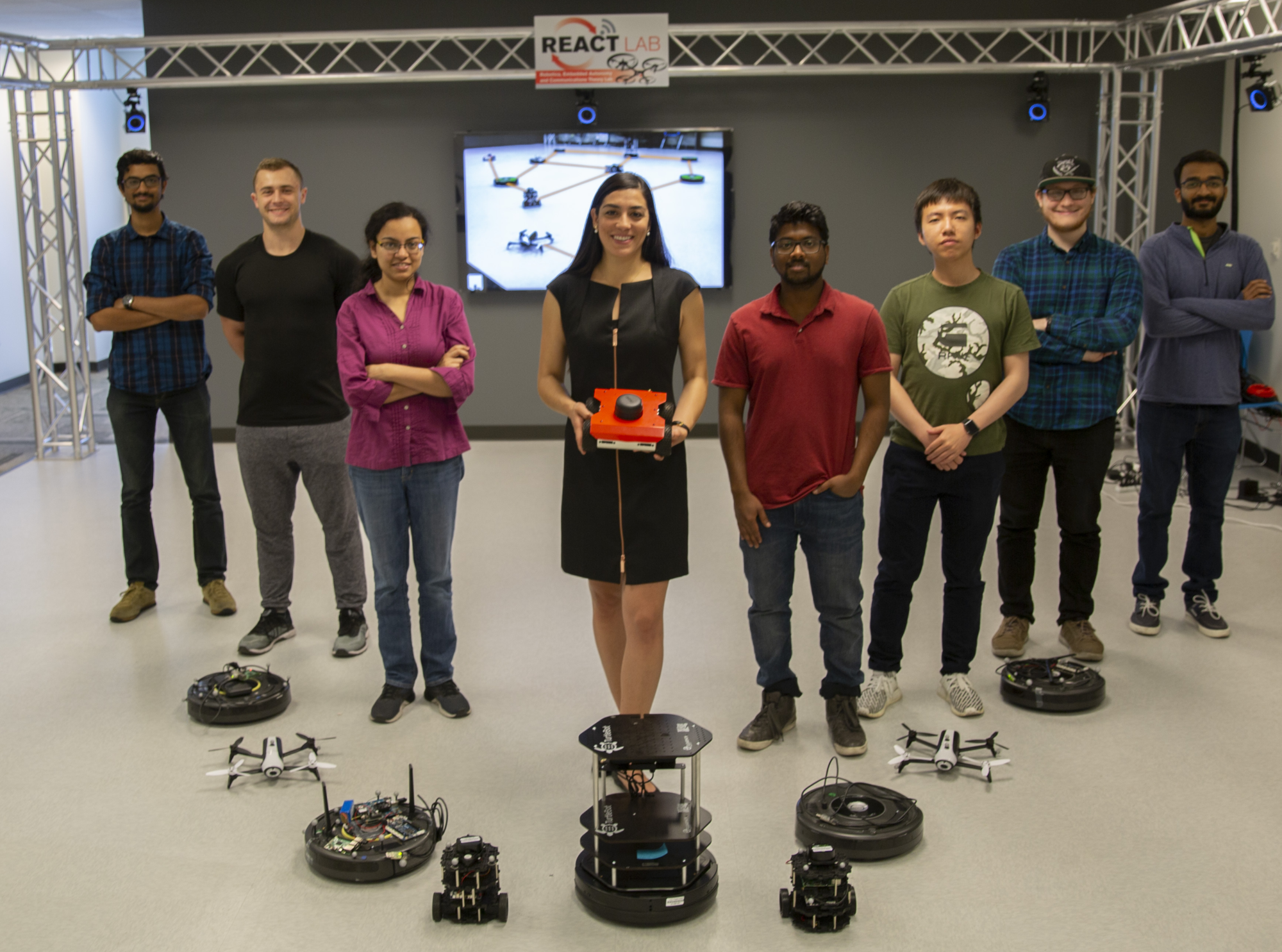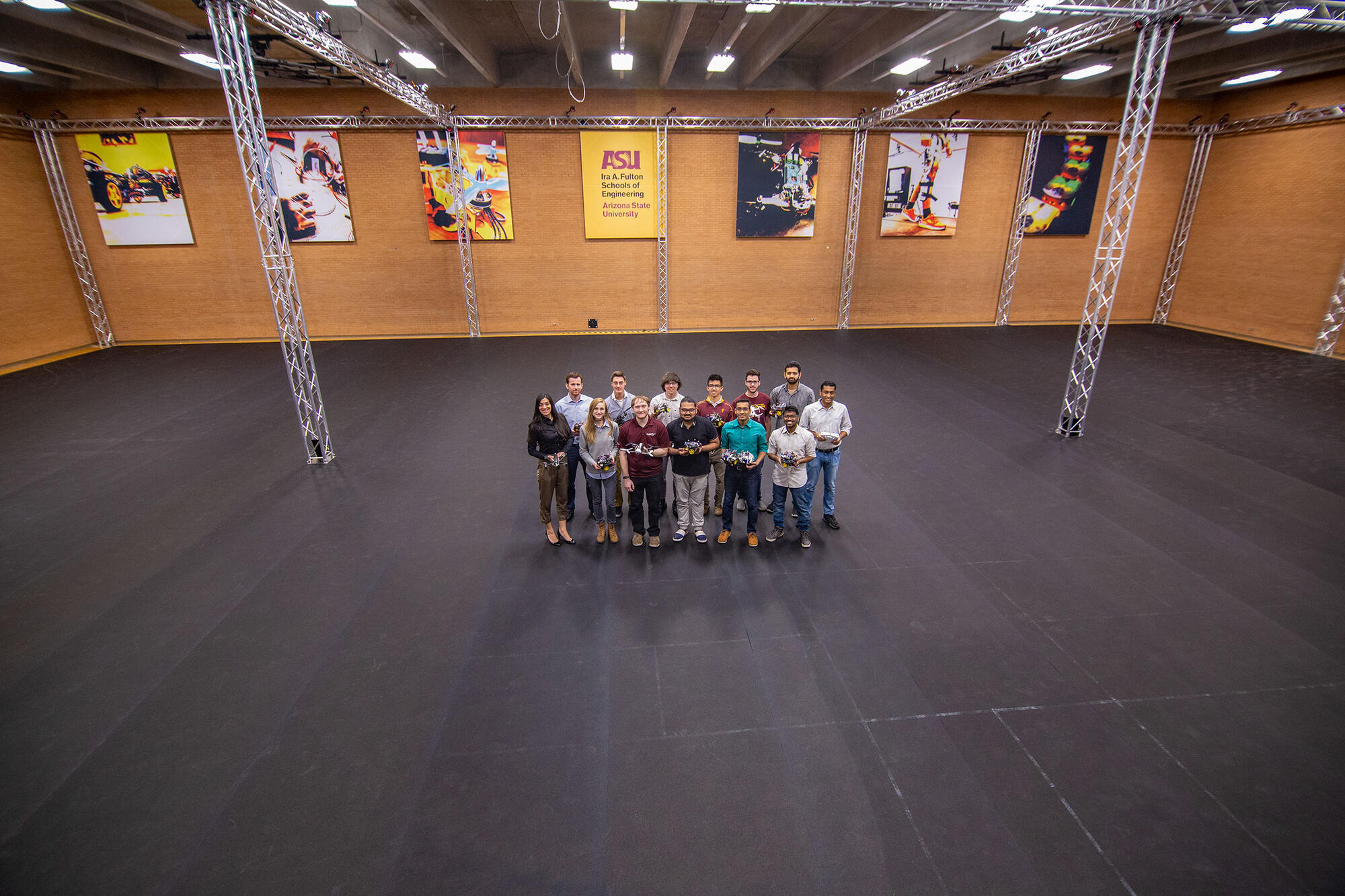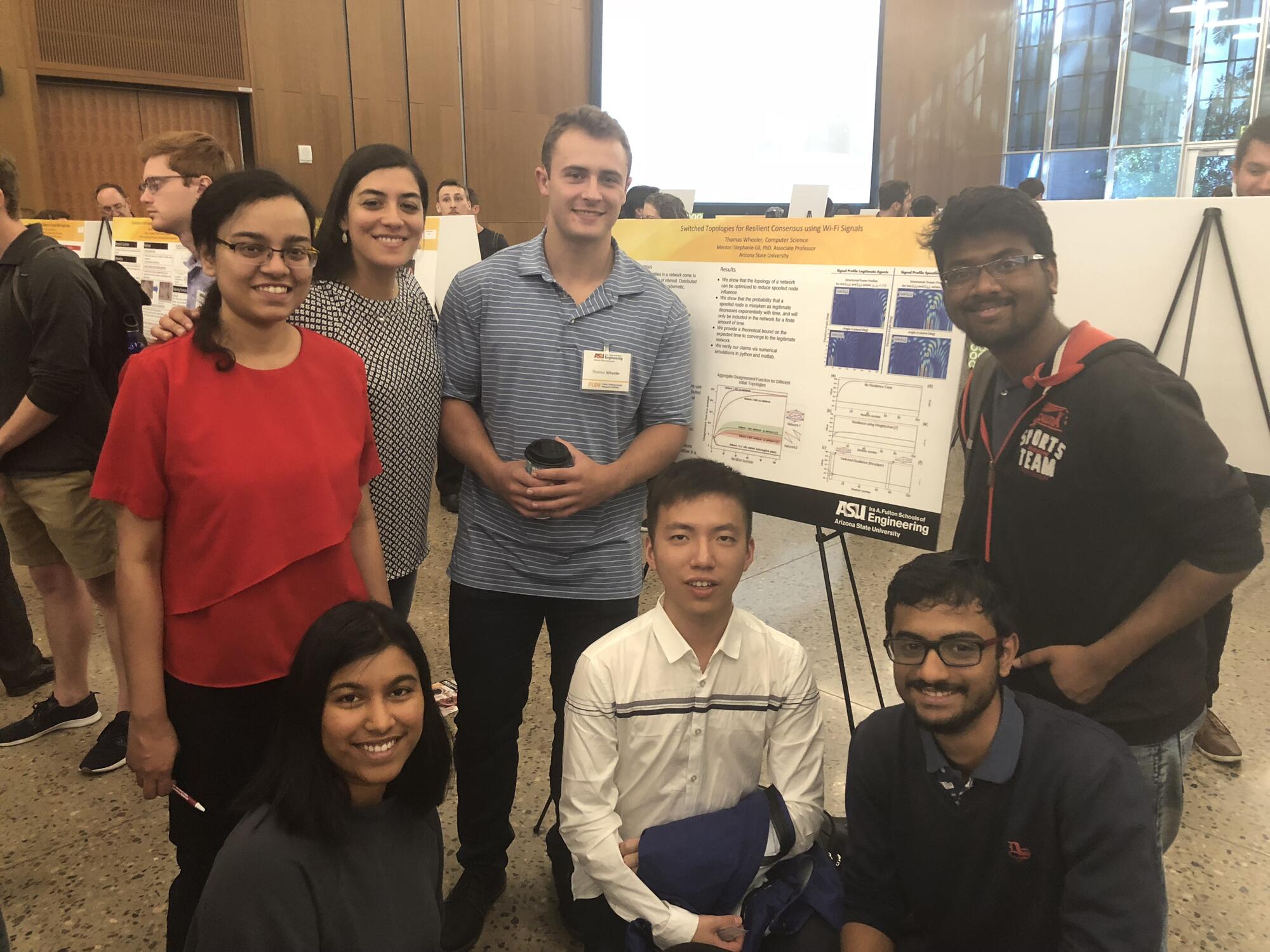By Anthony Cuthbertson
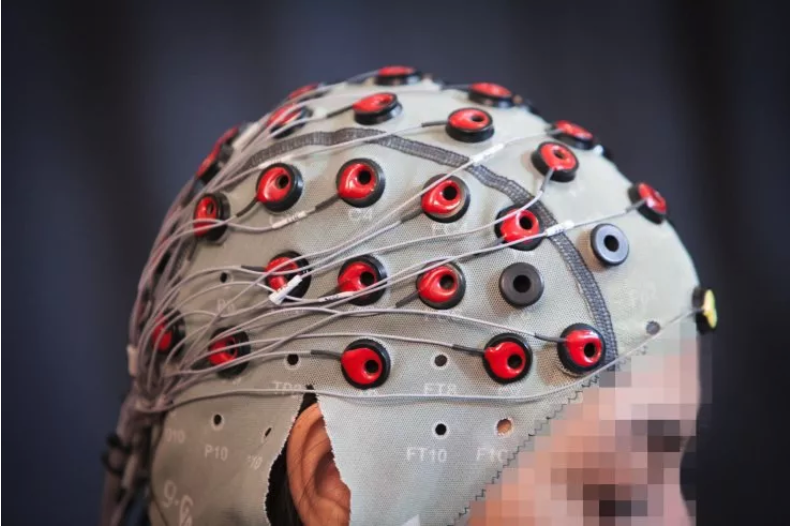 The system currently handles relatively simple binary-choice activities but the researchers say the work suggests we could one day control robots in much more intuitive ways. (Jason Dorfman, MIT CSAIL)
The system currently handles relatively simple binary-choice activities but the researchers say the work suggests we could one day control robots in much more intuitive ways. (Jason Dorfman, MIT CSAIL)
The idea of robots controlled by the human brain has long been a staple of science fiction, but efforts to create human-robot symbiosis in the real world have mostly been limited to prosthetics. Researchers are now aiming to change that, with a system that lets people control a humanoid robot just by thinking about it.
A team from MIT's Computer Science and Artificial Intelligence Laboratory (CSAIL) and Boston University have created a feedback system that works using an electroencephalography (EEG) cap that records brain activity and relays it to a robot in real time, causing the robot to move to correct its mistakes.
"This is a step in the right direction of programming robots to be more natural extensions of us," Andres F. Salazar-Gomez, a PhD student at Boston University who was involved in the research, tells Newsweek . "Specifically, it allows a human operator to correct a robot's errors in real time, without changing the way that they think."
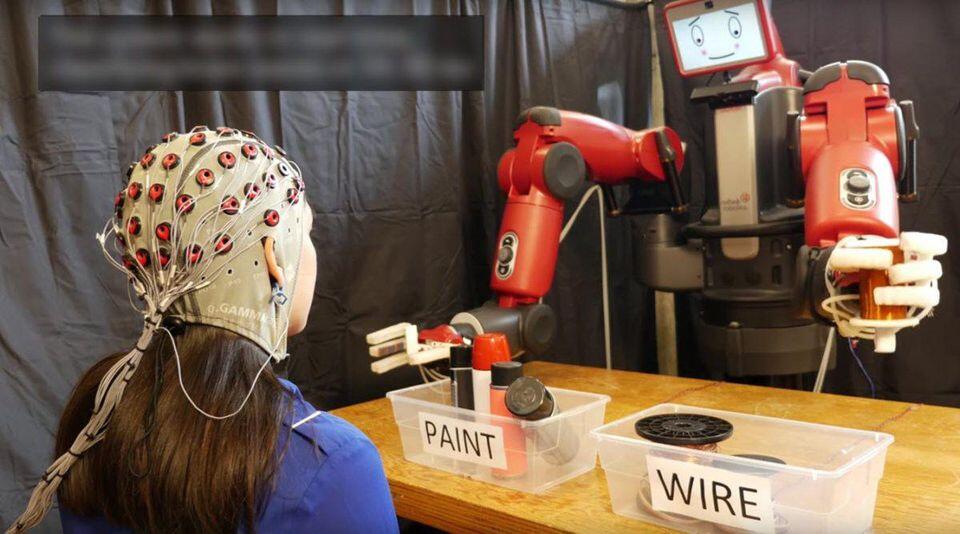 The system allows people to correct robot mistakes using signals from their brains. (Jason Dorfman, MIT CSAIL)
The system allows people to correct robot mistakes using signals from their brains. (Jason Dorfman, MIT CSAIL)
The study made use of a humanoid robot named Baxter, requiring it to sort paint cans from spools of wire. The system developed is able to detect if a person notices the robot make an error, and the signal relayed causes the robot to correct its mistake.
The biggest breakthrough is the way in which the robot is able to understand what the human controller is thinking without the person having to change their natural thought patterns. Past work in EEG-controlled robotics has required training humans to think in a prescribed way that computers can recognize.
To make the experience more natural, the researchers focussed on brain signals called error-related potentials (ErrPs), which generate naturally in the brain whenever we notice a mistake.
While the system only currently handles binary-choice activities like object sorting, the researchers believe the study paves the way for robots becoming a more natural extension of humans. The ability to control machines more intuitively could eventually improve our abilities to supervise factory robots, and control prosthetics or even self-driving cars.
"This could help innovate technology that adapts to us, rather than the other way around," says MIT CSAIL PhD student Joseph DelPreto. "Imagine robots or smartphones that could immediately correct themselves when you realize they're making a mistake.
"Humans are really good at predicting when something will go wrong and at learning from their mistakes. This technology can help us communicate that understanding to our robots and smart devices using only our natural thought patterns."
| Newsweek - Mind-Controlled Robots Make Machines 'Natural Extension of Us' | 0 bytes |


